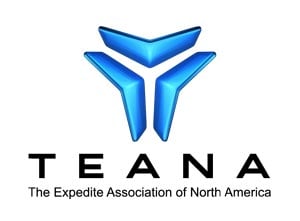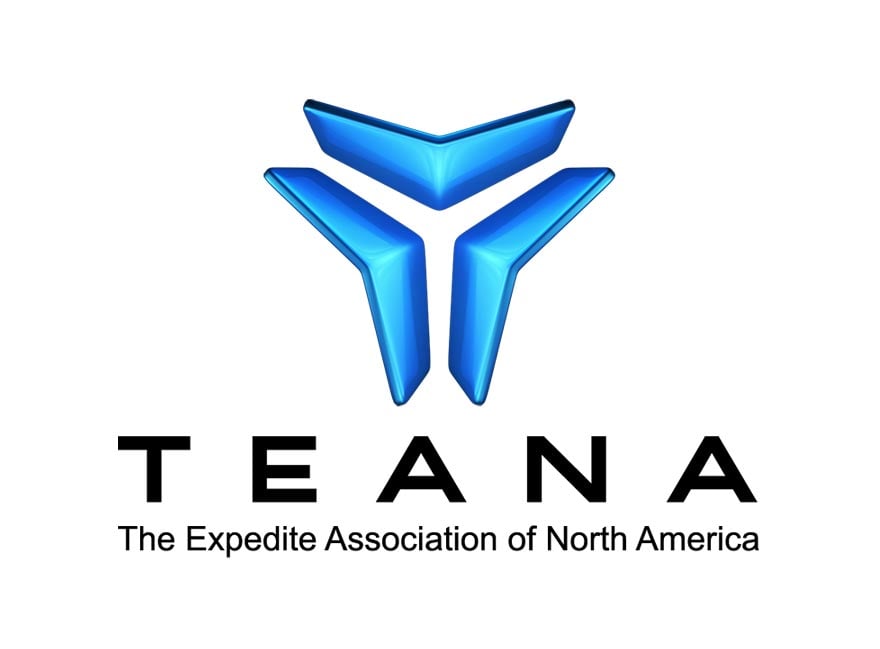
Contents
FMCSA has extended its emergency declaration regarding COVID-19 through August 31, 2022. For the latest version and other guidance related to COVID-19 is available at www.fmcsa.dot.gov/COVID-19. Note that use of the declaration now requires monthly reporting by carriers.
Courts
- Appeals court upholds the latest changes to HOS rules
- Appeals court overturns ruling for Schneider in classification case
Regulation and Enforcement
- Registration now open for younger driver apprenticeship program
- FMCSA denies ELD exemption for elevator maintenance firm
- School bus association seeks CDL testing exemption regarding engine compartments
- FMCSA proposes to incorporate CVSA procedures into hazmat permit regs
Legislation
- Clean energy law includes tax credits for electric trucks
- T&I Committee approves bill to fund truck parking expansion
- Rep. Mast introduces a package of bills to loosen restrictions, taxes on trucking
- Senate bill would loosen requirements for VA funding of commercial driver training
Advocacy and Comment
Courts
Appeals court upholds the latest changes to HOS rules
The U.S. Court of Appeals for the District of Columbia Circuit late last month rejected a challenge to the September 2020 changes in the federal hours-of-service rules for truck drivers. Three truck safety advocacy groups and the Teamsters Union had challenged two of the revisions. The parties argued that FMCSA had failed to adequately explain its conclusion that the new short-haul exemption was safety neutral with respect to collision risk and driver health and would not negatively impact regulatory compliance. They also argued that the agency had insufficiently explained how the modification to the 30-minute break requirement was safety neutral and would not impact driver health. The parties did not challenge other rule changes, including the split options for split rest and increased flexibility afforded drivers when operating in adverse conditions.
Although the 43-page appeals court opinion goes into much more detail, the fundamental ruling was simple. “Because the modifications to the hours-of-service rules were sufficiently explained and grounded in the administrative record, we deny the petition,” the court said. For the opinion, visit https://www.cadc.uscourts.gov/internet/opinions.nsf and search 20-1370 under “Quick Search.”
Appeals court overturns ruling for Schneider in classification case
The U.S. Court of Appeals for the 7th Circuit has reversed a U.S. district court ruling in favor of Schneider National in a worker classification case and sent it back to the lower court for further proceedings. The district court had granted Schneider’s motion to dismiss all claims, which were that the carrier (1) violated minimum wage requirements under the federal Fair Labor Standards Act and Wisconsin law; (2) unjustly enriched itself under Wisconsin law; and (3) violated federal Truth-in-Leasing regulations.
The appeals court ruled that the district court had erred by giving decisive effect to the terms of Schneiders contracts. “In many areas of the law, the district court’s approach would be sound, but not under the Fair Labor Standards Act,” the appeals court said. “As explained below, in determining whether a person is an employee under the Act, what matters is the economic reality of the working relationship, not necessarily the terms of a written contract.” The appeals court concluded that the plaintiff’s allegations about the economic reality of his working relationship state a viable claim under FLSA and the other laws relies upon. For the opinion in the case, visit http://media.ca7.uscourts.gov/opinion.html and search for case No. 21-2122.
Regulation and Enforcement
Registration now open for younger driver apprenticeship program
About six months after publishing the requirements for the program, the Federal Motor Carrier Safety Administration has opened the Safe Driver Apprenticeship Program for carriers to apply for participation. The program, which was established by last year’s infrastructure legislation, allows 18- to 20-year-old individuals to drive commercial motor vehicles in interstate commerce under certain conditions. At any given time, FMCSA can allow only 3,000 drivers to participate. For more information and a link to the carrier application portal, visit https://www.fmcsa.dot.gov/safedriver.
FMCSA denies ELD exemption for elevator maintenance firm
FMCSA has denied an application submitted in 2019 by Harris Companies, Inc. for an exemption from the electronic logging device (ELD) rule for all its employees who are required to prepare records of duty status (RODS). The exemption would have included elevator technicians, electricians, other general laborers, and welders who operate commercial motor vehicles in interstate commerce. FMCSA said that the applicant has not demonstrated that it would likely achieve a level of safety that is equivalent to, or greater than, the level that would be achieved absent the requested exemption. For the Federal Register notice, visit https://www.federalregister.gov/d/2022-15224.
School bus association seeks CDL testing exemption regarding engine compartments
FMCSA is requesting comments by September 12 on an application from the National School Transportation Association (NSTA) for an exemption from the “under-the-hood” testing requirement for commercial driver’s license applicants seeking a school bus endorsement. Drivers issued a CDL under the exemption would be restricted to intrastate operation of school buses only. For the Federal Register notice https://www.federalregister.gov/d/2022-17228.
FMCSA proposes to incorporate CVSA procedures into hazmat permit regs
FMCSA is requesting comments by September 7 on a proposal to incorporate by reference into the hazardous materials safety permit regulations the updated Commercial Vehicle Safety Alliance (CVSA) handbook containing inspection procedures and Out-of-Service Criteria (OOSC) for inspections of shipments of transuranic waste and highway route-controlled quantities of radioactive material. For the Federal Register notice, visit https://www.federalregister.gov/d/2022-16510.
Legislation
Clean energy law includes tax credits for electric trucks
President Biden has signed into law the so-called Inflation Reduction Act (H.R. 5376), which includes various measures related to clean energy and health care. Among the legislation’s clean energy provisions is a “qualified commercial clean vehicle credit,” which provides a tax credit of up to $40,000 for qualified heavy commercial electric vehicles, or up to $7,500 for qualified commercial electric vehicles weighing less than 14,000 pounds. A separate provision provides a tax credit of up to $100,000 for installation of charging stations needed to support those vehicles.
For details of the legislation, visit https://www.congress.gov/bill/117th-congress/house-bill/5376. The provisions outlined above are Sections 13403 and 13404.
T&I Committee approves bill to fund truck parking expansion
The House Transportation & Infrastructure Committee has advanced legislation (H.R. 2187) that would authorize $755 million over five years to build additional commercial truck parking facilities. The bill not only would cover construction of commercial truck parking spaces at rest areas and weigh stations along highways but also would cover expansion of parking adjacent to truck stops and travel plazas, at publicly owned freight facilities such as port terminals. For more information on the bill, visit https://www.congress.gov/bill/117th-congress/house-bill/2187.
Rep. Mast introduces a package of bills to loosen restrictions, taxes on trucking
Rep. Brian Mast (R-Florida) has introduced five bills that to address the supply chain crisis by reducing regulatory burdens and taxes on the trucking industry, linking them as steps to address the ongoing supply chain crisis. The tax-related bills include one (H.R. 8413) that is similar to bills that have been introduced by others in Congress over the years. H.R. 8413 would repeal the 12% federal tax on truck chassis, which Mast says would “lower the cost of entry for aspiring truckers and get more trucks on the road.” For more information, visit https://www.congress.gov/bill/117th-congress/house-bill/8413. The other tax-related bill (H.R. 8413) would repeal the 24.3-cent excise tax on diesel fuel. For more information, visit https://www.congress.gov/bill/117th-congress/house-bill/8414.
The other three bills address issues that are more controversial, even within the trucking industry itself. H.R. 8411 would extend the permissible length of each twin semitrailer from 28 to 33 feet to allow truck combinations to haul more cargo. For more information, visit https://www.congress.gov/bill/117th-congress/house-bill/8411. The idea of allowing longer doubles became a big issue about seven years ago and sharply divided truckload and LTL carriers.
H.R. 8412 would increase the permissible weight of a semitrailer from 80,000 pounds to 97,000 pounds. For more information, visit https://www.congress.gov/bill/117th-congress/house-bill/8412. While generally supported by shippers and some major private fleets, the idea of allowing heavier trailers has been controversial within the truckload industry because many carriers fear that customers would pressure them into replacing existing trailers without adequate compensation and also while rendering the prior trailers obsolete.
The final bill, H.R. 8417, would permanently repeal the hours-of-service regulations, although it would require carriers to allow truck drivers to take at least 10 hours off duty “when such driver informs the motor carrier or motor private carrier that such driver needs immediate rest.” For more information, visit https://www.congress.gov/bill/117th-congress/house-bill/8417. This bill is most controversial of all, although Mast argues that FMCSA’s actions to rescind HOS rules during the height of the pandemic demonstrate that the regulation is unnecessary.
Senate bill would loosen requirements for VA funding of commercial driver training
Sen. Deb Fischer (R-Nebraska) has introduced legislation (S. 4766) that would exempt commercial driver training from some of the requirements governing allocation of funds for veterans educational assistance by the Department of Veteran Affairs (VA). For details on the legislation, visit https://www.congress.gov/bill/117th-congress/senate-bill/4766.
Advocacy and Comment
Dispatch Services
Exhaustive comments were filed by 13 stakeholders in the FMCSA’s open docket considering the future of “dispatch services.” Most commenters supported the retention of the existing definition of “Broker” which includes third parties who arrange for transportation for compensation and are not exclusively representing one carrier.
The 13 areas of inquiry presented by the Agency opens the door for an analysis of DOT’s obligations to enforce the National Transportation Policy and prevent identity theft, larceny by fraud, and double brokerage scams, all of which are serious demonstrative problems that are currently unaddressed. Unlike the Federal Maritime Commission which exercises its regulatory authority over unreasonable practices in ocean freight, other than record industry complaints, the FMCSA does not actively investigate and police fraudulent and felonious conduct notwithstanding statutory and regulatory authority to do so.
The explosive growth in spot market booking of freight has increased the opportunity for “catfishing” where the internet persona of the potential logistics partner cannot be trusted.
At the Department level it is DOT’s responsibility to enforce the National Transportation Policy and ensure that all stakeholders can rely on a competitive marketplace in which properly licensed, authorized and insured brokers and carriers can be identified and used. Maybe the dispatch service docket will afford the industry the opportunity to demonstrate a more active policing of the industry, not less in the public’s interest and that a special appropriation and task force should be set up by DOT to readdress these issues.
AB5 Goes Viral – Infects New Jersey
As predicted, the Supreme Court’s decision not to hear the appeal of AB5 has already resulted in increased virulence. In the past week, the State of New Jersey has issued two unfavorable decisions. In one, its Department of Labor has refused to apply a decade old carve-out from employee status for independent contractors which are paid based on productivity (i.e., either by the mile or on percentage). This legislation, which was intended to track the federal owner operator leasing rules, has been declared ineffective because the carrier augmented the owner operator’s base pay with pass through payments and deductions contemplated by the very federal rules the carveout was intended to facilitate.
The same week, the New Jersey Supreme Court, in a rush to facilitate the ABC Test, ruled that there would be no court appeal of a New Jersey DOL ruling in favor of application of the ABC test in an unrelated industry.
Wow! So much for due process and judicial appeal in New Jersey. By now, it should have become obvious that the ABC test endorsed by CA in AB5 is a killer of small business opportunities and that there is no easy way to contain its spread. Isn’t it ironic that two states, California and New Jersey, with among the highest state tax burdens and great dependence on the owner operator model for intermodal port traffic should be the first in line to stifle blue collar entrepreneurship.
Unfortunately the decision of the 7th Circuit in the Schneider case may be a harbinger of things to come. Hopefully the Court’s remand will not encourage a renewal of vexatious class action suits alleging that retention of owner operators under the federal leasing regulations somehow violates well established precedent.
Stay tuned! Clearly there is more to come on this issue.
Our Process lorem ipsum dolor sit amet, consectetur adipiscing elit. Nunc vulputate libero et velit interdum, ac aliquet odio mattis.
Value prop lorem ipsum
Ut posuere hendrerit nisl metus neque. Facilisis quis adipiscing a molestie. Tempor turpis tincidunt nulla diam in. Nec etiam ut neque placerat mauris nulla. Semper hendrerit at urna orci in faucibus sit lacus. Tincidunt fermentum consequat.
SEE OTHER CITIES WE SERVICE IN THIS STATE
Value prop lorem ipsum
Ut posuere hendrerit nisl metus neque. Facilisis quis adipiscing a molestie. Tempor turpis tincidunt nulla diam in. Nec etiam ut neque placerat mauris nulla. Semper hendrerit at urna orci in faucibus sit lacus. Tincidunt fermentum consequat.
SEE OTHER CITIES WE SERVICE IN THIS STATE
Related Blog Posts

Regulatory and Legislative Update - December 2021
Contents FMCSA has extended its emergency declaration regarding COVID-19 through February 28. For the latest version and other guidance related to COVID-19 is available at www.fmcsa.dot.gov/COVID-19. Note that use of the declaration now requires monthly reporting by carriers. Legislation House passes ocean shipping reform bill House passes Build Back Better Act House bill would federalize major crash lawsuits, criminalize staging of crashes...

Regulatory and Legislative Update - June 2023
Contents Regulation and Enforcement Labor Department nominee concedes federal ABC test is up to Congress Volpe Center supporting FMCSA in test of wireless inspections CVSA announces Operation Safe Driver Week for July 9-15 Women of Trucking Advisory Board to meet June 29 FMCSA launches anti-human trafficking campaign Brenna Marron to head FMCSA’s government affairs office Legislation House T&I Committee approves package of bills related to...

Regulatory and Legislative Update - August 2023
Contents Regulation and Enforcement FMCSA to revisit state regulation of drivers’ rest breaks Three devices removed from list of registered ELDs FMCSA updates technical guidance on ELDs Brian Stansbury appointed FMCSA’s chief counsel FMCSA rejects driver’s requested exemption from multiple HOS requirements Legislation Senate DOT funding bill would block younger driver program mandates Senate bill would establish a carrier selection standard...

Regulatory and Legislative Update - January 2025
Contents Regulation and Enforcement FMCSA expands crash preventability review criteria FMCSA to highlight upcoming SMS changes in January 16 webinar Compliance date pushed back for certain provisions of broker/forwarder rule Trump labor pick, port dispute stance raise questions about labor policy FMCSA proposes to waive hazmat endorsements for certain limited operations Company denied exemption for limited interstate driving by younger drivers...

Regulatory and Legislative Update - April 2021
Contents FMCSA has extended its emergency declaration regarding COVID-19 through May 31. For the latest version and other guidance related to COVID-19 is available at www.fmcsa.dot.gov/COVID-19. Regulation and Enforcement DOL proposes to withdraw rule on worker classification DOT rescinds Trump administration’s changes on rulemakings, guidance CVSA to hold enforcement events in May and July Bus operator seeks exemption from full clearinghouse...

Regulatory and Legislative Update - March 2021
Contents FMCSA has extended its emergency declaration regarding COVID-19 through May 31. For the latest version and other guidance related to COVID-19 is available at www.fmcsa.dot.gov/COVID-19. Regulation and Enforcement DOL postpones effective date on independent contractor rule DOL withdraws opinions sleeper berth pay, independent contractor status SBA takes steps to improve PPP access for very small businesses FMCSA postpones effective date...

Regulatory and Legislative Update - November 2022
Contents Regulation and Enforcement DOL proposes to reverse Trump-era rule on worker classification under FLSA FMCSA’s COVID-19 emergency declaration ends FMCSA rejects SBTC exemption related to the language skills requirement School bus group receives CDL testing exemption regarding engine compartments FMCSA renews UPS exemption from certain ELD requirements FMCSA renews ELD exemption for motion picture-related drivers Legislation House bill...

Regulatory and Legislative Update - March 2022
Contents FMCSA has extended its emergency declaration regarding COVID-19 through February 28. For the latest version and other guidance related to COVID-19 is available at www.fmcsa.dot.gov/COVID-19. Note that use of the declaration now requires monthly reporting by carriers. Regulation and Enforcement FMCSA removes x-ray exam from definition of ‘medical treatment’ FMCSA drops mandate that drivers disclose traffic violations to employers FMCSA...

Regulatory and Legislative Update - July 2022
Contents FMCSA has extended its emergency declaration regarding COVID-19 through August 31, 2022. For the latest version and other guidance related to COVID-19 is available at www.fmcsa.dot.gov/COVID-19. Note that use of the declaration now requires monthly reporting by carriers. Courts Leased owner-operator model outlawed in California as Supreme Court denies cert Supreme Court refuses to consider preemption of broker negligent selection...

Regulatory and Legislative Update - November 2021
Contents FMCSA has extended its emergency declaration regarding COVID-19 through November 30. For the latest version and other guidance related to COVID-19 is available at www.fmcsa.dot.gov/COVID-19. Note that use of the declaration now requires monthly reporting by carriers. Legislation Senate version of infrastructure bill becomes law Senate bill would revise hours-of-service rules, lower CDL age to 18 House bill would pay carriers to assist...

Regulatory and Legislative Update - February 2023
Contents Regulation and Enforcement FMCSA proposes to revamp SMS, rejects IRT as ‘overly complex’ FMC judge rules in favor of motor carriers on intermodal chassis choice Further input sought on regulating autonomous trucking operations Three ELDs are removed from FMCSA’s list of registered devices CVSA International Roadcheck scheduled for May 16-18 FMCSA rejects driver’s requested exemption from HOS, ELD requirements Multiple carriers seek...

Regulatory and Legislative Update - February 2022
Contents FMCSA has extended its emergency declaration regarding COVID-19 through February 28. For the latest version and other guidance related to COVID-19 is available at www.fmcsa.dot.gov/COVID-19. Note that use of the declaration now requires monthly reporting by carriers. Regulation and Enforcement Safety fitness procedures apparently are next on FMCSA’s regulatory agenda FMCSA adopts new vision standards for commercial drivers FMCSA...
WHAT IS HOT SHOT TRUCKING? AKA HOTSHOT TRUCKING
Modern business is all about strict timelines. Whether your field is manufacturing, extraction, retail, or research and development, your operations are bound to rely on activities that operate in tandem. The most minor of supply shortages can throw these activities off, potentially costing you thousands of dollars just for a few hours' delay. Success thus hinges on your ability to right the ship as quickly as possible after a supply shortage arises.
Industries We Serve
Modern day hot shot trucking provides the speed and exclusivity you need to meet the most demanding and time-sensitive shipping requirements. We use every resource, avenue, and channel available to ship your freight by ground or air. Designed specifically to address supply and distribution problems that arise without warning, hotshot trucking tactics involve coordinating a network of carriers in a variety of locations. By calling on the vehicles closest to your supply or distribution points, hotshot brokers can fill any sudden gaps in your supply network almost as soon as they happen. This minimizes the disruption to your business and allows you to quickly return to ordinary operations, weathering the storm without skipping a beat.
Automotive
The automotive supply chain already has significant challenges. Don’t let malfunctioning equipment stop the production line. Step on the gas with HotShotTrucking.com’s suite of services that will get you back in the fast lane. With HotShotTrucking.com, companies are devising shipping strategies to swiftly deliver critical parts and equipment — whether it's ground expedite service with sprinter vans, box trucks and 53-foot tractor trailers or air freight and air cargo.
Aviation & Aerospace
Every moment a commercial airliner sits on the ground, it costs an airline money. Expedited freight services by HotShotTrucking.com can get you back in the air with prompt delivery of parts and equipment throughout North America. We are equipped with the expertise to navigate the complexities of shipping jet engines and other types of loads, and our network of hot shot drivers has extensive experience transporting aviation assets.
Construction
One shipping delay can snowball and cause delays throughout your entire project. You need an experienced 3PL provider who understands the construction industry and has the logistical reach to deliver your freight on time, anywhere. That 3PL partner is HotShotTrucking.com. Whether in the air or on the ground via truck and trailer, we can connect companies to expedited freight services for the prompt delivery of parts and equipment throughout North America.
Mining & Metals
From cranes to chemicals to excavators to conveyor belts, HotShotTrucking.com has the experience and industry know-how required for shipping sensitive, oversized, and hazardous equipment. Third-party hot shot trucking and logistics providers such as HotShotTrucking.com specialize in devising and implementing innovative shipping solutions, ensuring mines can swiftly return to operation. We’ll pick up your shipment, deliver it to the airport and receive it at the other end – providing hand-carried service as necessary or required.
Manufacturing
Every moment a manufacturing facility or factory sits idle costs a company money because of the high costs involved. With many manufacturers building to only just-in-time production rates, any disruption threatens parts and vehicle inventories. This is where the speed and expertise of freight services from HotShotTrucking.com can make a difference throughout the entire manufacturing supply chain. We do all the logistical legwork to find the optimal solution for your job, whether it's an exclusive air charter or expedited ground shipping.
Telecommunications
From servers to cell towers, information, voice, and data must flow to keep businesses, production, and the public online and connected. When equipment goes dark, depend on HotShotTrucking.com to get your systems flashing green again. This is where the speed and experience of trucking and freight services from HotShotTrucking.com can help. Our hot shot truck network excels at the prompt delivery of parts and equipment throughout North America.
Oil & Gas
The oil and gas industry faces challenging conditions in offshore and onshore oil rigs, often in remote locations with limited infrastructure. Don’t let oil pumps or pipelines sit idle waiting for equipment. By having the right plans, parts, people, and logistics partner like HotShotTrucking.com, you can effectively mitigate plant or pump downtime, unscheduled disruptions, and equipment failures.
Cost of Urgent Shipping
Which of our specialized shipping services best fits your needs?
Blog and Resource Center
How AirFreight.com Solved a PGA Tour Shipping Emergency
Learn how AirFreight.com located a lost shipment and helped save the PGA Golf Tour.
How AirFreight.com Saved The Farm By Solving A Major Shipping Delay
Learn how we saved a Montana-based artisanal farm thousands of dollars by expediting a shipment of perishable goods.
Expedited Shipping Vendor Comparison
We’ve done the research for you. This vendor comparison sheet breaks down how AirFreight.com stacks up against the competition.

talk to an expeditor now
Get a Quote in Minutes for Your Time-Critical Freight Needs
GET A QUOTE
